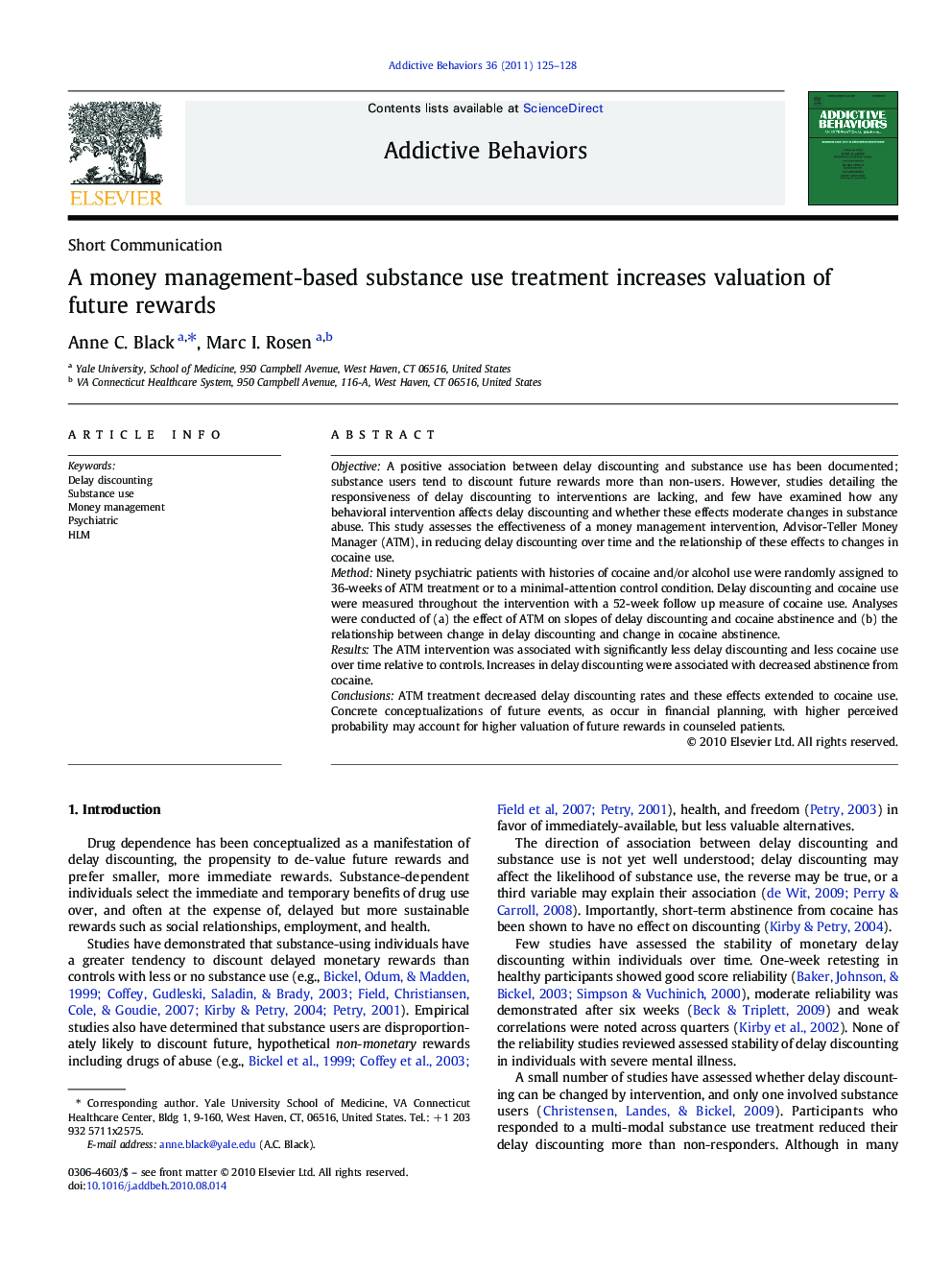| Article ID | Journal | Published Year | Pages | File Type |
|---|---|---|---|---|
| 899957 | Addictive Behaviors | 2011 | 4 Pages |
ObjectiveA positive association between delay discounting and substance use has been documented; substance users tend to discount future rewards more than non-users. However, studies detailing the responsiveness of delay discounting to interventions are lacking, and few have examined how any behavioral intervention affects delay discounting and whether these effects moderate changes in substance abuse. This study assesses the effectiveness of a money management intervention, Advisor-Teller Money Manager (ATM), in reducing delay discounting over time and the relationship of these effects to changes in cocaine use.MethodNinety psychiatric patients with histories of cocaine and/or alcohol use were randomly assigned to 36-weeks of ATM treatment or to a minimal-attention control condition. Delay discounting and cocaine use were measured throughout the intervention with a 52-week follow up measure of cocaine use. Analyses were conducted of (a) the effect of ATM on slopes of delay discounting and cocaine abstinence and (b) the relationship between change in delay discounting and change in cocaine abstinence.ResultsThe ATM intervention was associated with significantly less delay discounting and less cocaine use over time relative to controls. Increases in delay discounting were associated with decreased abstinence from cocaine.ConclusionsATM treatment decreased delay discounting rates and these effects extended to cocaine use. Concrete conceptualizations of future events, as occur in financial planning, with higher perceived probability may account for higher valuation of future rewards in counseled patients.
Research Highlights►ATM money management-based intervention decreased delay discounting. ►ATM intervention decreased cocaine use over time. ►Change in delay discounting was related to change in cocaine abstinence. ►Monetary Choice Questionnaire scores were reliable in psychiatric patient sample.
